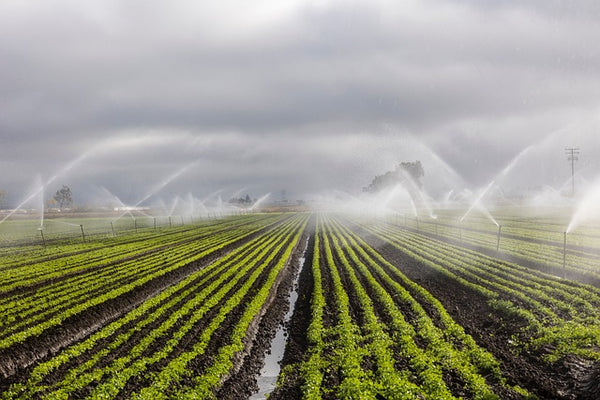
Smart Irrigation: Enhancing Water Conservation Through Innovative Technology
In an age where environmental consciousness is paramount, the agricultural sector is under increasing pressure to optimize water usage. Smart irrigation systems have emerged as a game-changing solution, leveraging advanced technology to conserve water while maximizing crop yield. Let's explore how smart irrigation is revolutionizing agriculture by providing efficient water management solutions.
The Need for Smart Irrigation:
In the face of global water scarcity, traditional irrigation methods are no longer viable. These systems often result in overwatering or inefficient water distribution, leading to wastage and reduced productivity. Smart irrigation addresses these challenges by integrating sensors, data analysis, and automation to deliver precise, demand-based watering.

How Smart Irrigation Works:
Smart irrigation systems utilize sensors to monitor soil moisture levels, weather conditions, and plant requirements in real-time. This data is analyzed to determine the optimal irrigation schedule and duration, ensuring that crops receive the right amount of water at the right time. Automated valves and controllers adjust water flow accordingly, minimizing waste and maximizing efficiency.
Key Benefits of Smart Irrigation:
- Water Conservation: Targeted irrigation reduces water usage significantly, conserving this precious resource.
- Energy Efficiency: Automated operations and optimized schedules lower energy consumption associated with pumping and distribution.
- Improved Crop Health: Maintaining optimal soil moisture levels promotes healthier plant growth and higher yields.
- Cost Savings: Reduced water and energy usage translate into lower utility bills and operational costs for farmers.
- Environmental Sustainability: Smart irrigation minimizes runoff, erosion, and nutrient leaching, preserving soil health and water quality.
Implementing Smart Irrigation:
Transitioning to smart irrigation involves selecting the appropriate technology and customizing it to fit specific agricultural needs. Farmers can choose from various options, including soil moisture sensors, weather-based controllers, and drip irrigation systems. Collaboration with irrigation experts and technology providers can streamline the implementation process and ensure optimal performance.
Case Studies: Success Stories in Smart Irrigation:
- Precision Agriculture in California's Central Valley: Innovative farmers have adopted precision irrigation techniques, resulting in significant water savings and increased crop yields.
- Drip Irrigation in Israel: Israel has successfully implemented drip irrigation systems in arid environments, minimizing evaporation and runoff.
- Future Outlook: Advancements in technology, such as satellite imaging and machine learning, hold promise for further enhancing water management practices. With continued research and investment, smart irrigation will play a vital role in building a sustainable agricultural sector.
Smart irrigation represents a significant advancement in water management, offering sustainable solutions for modern agriculture. By harnessing technology to optimize water usage, farmers can conserve resources, increase productivity, and mitigate environmental impact. Embracing smart irrigation is crucial for ensuring food security and environmental sustainability in the face of growing water scarcity.
